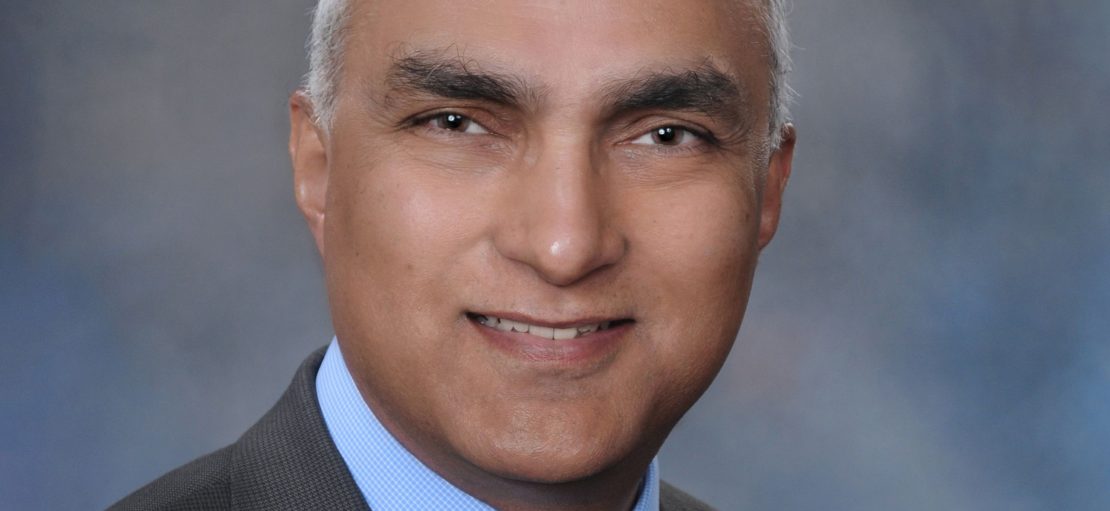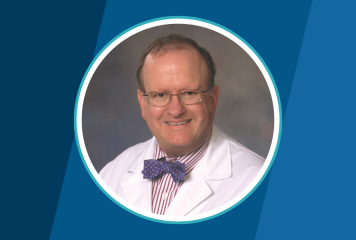Voices that Transform ABIM: Dr. Ashok Balasubramanyam
May 18, 2018 | Posted by Ashok Balasubramanyam, MD | ABIM Governance, Celebrating Physicians, Why I Serve
Ashok Balasubramanyam, MD, is the incoming Chair-Elect of the ABIM Endocrinology, Diabetes, and Metabolism Board, and will begin his term in July 2018. He is board certified in Internal Medicine and Endocrinology, Diabetes, and Metabolism. He lives in Houston, Texas, and is Professor of Medicine in the Division of Diabetes, Endocrinology and Metabolism and Vice President for Academic Integration at Baylor College of Medicine. His endocrine practice is based at Ben Taub General Hospital, Houston.
ABIM is proud that our diverse governance boards and committees, which include practicing doctors from various backgrounds, regions, practice settings and age ranges who are all committed to working with the community to enhance ABIM programs. We invite you to get to know Dr. Balasubramanyam by reading more below.
Dr. Balasubramanyam, a board certified internist and endocrinologist, is Professor of Medicine in the Division of Diabetes, Endocrinology and Metabolism and Vice President for Academic Integration at Baylor College of Medicine, Houston, Texas. His academic career has involved basic and translational research, education (as Director of the Endocrine Fellowship Program and of Baylor’s Clinical Scientist Training Program) and clinical service.
Currently, Dr. Balasubramanyam serves as a member of the Endocrinology, Disease, and Metabolism Board of the American Board of Internal Medicine. He has served as President of the Association of Program Directors in Endocrinology and Metabolism and was formerly a member of the Hormone Health Network Committee of the Endocrine Society.
Dr. Balasubramanyam earned his undergraduate degree at Yale University and his medical degree at St. John’s Medical College, Bangalore, India. He completed residency training and was Chief Resident at Baylor College of Medicine, and he completed fellowship training in endocrinology at Massachusetts General Hospital, Boston.
Who inspired you to be a physician?
My sister was my inspiration. I’m much younger and looked up to her. I saw her go through medical school and it seemed like such a wonderful experience. She was a terrific physician and I wanted to be like her.
What interests you most about the field of Endocrinology?
In my medical school, for some reason, they taught endocrine physiology first in the physiology course, and I completely latched onto it from almost my first week as a medical student. I spent the rest of my time in medical school and residency trying to forget it and do something else but kept coming back to it. Endocrinology has such beauty and logic—both incredible depth and breadth—and I think it’s that combination that really got me.
What are some of the challenges you face in your work?
Medicine as a whole is in a tremendous welter of activity – tons of information physicians have to know, our patients are more savvy, there’s difficulty obtaining care, etc. Our educational changes are happening so rapidly that issues such as our ability to assess people’s knowledge, their fitness for clinical practice and their creativity for clinical research becomes challenging. There needs to be a balance between creative education that helps physicians and helps the public vs. doing too much or too little.
Why did you decide to be part of ABIM’s Endocrinology, Disease, and Metabolism Board?
It was an evolutionary process, really. I was a program director for endocrinology at Baylor. From the time I was a junior faculty member, the importance of proper curricular design and administration and promoting the wellness in the careers of young physicians really grew on me. From there, I became a member of APDEM, the national organization of program directors of accredited endocrinology fellowship programs. I then became a member of the APDEM Council and then becoming its president just seemed to be something that happened. I think the experience there and the idea that I could use all of that accumulated experience in the front lines of endocrine training to help people on a bigger scale was really what attracted me to ABIM.
Can you talk a little bit about your work in Ketosis-Prone Diabetes? Why is it meaningful?
My research work has been very translational in an area that is now being called “atypical diabetes”- it has allowed us to go from patient phenotypes to cellular and genetic mechanisms and back into optimal diagnostic and treatment paradigms. What’s really exciting is that this area of investigation has evolved from an esoteric region into a much broader field, allowing us to reclassify atypical diabetes in an etiological manner and see how that fits into the spectrum of diabetes. We have focused on defining syndromes of Ketosis-Prone Diabetes that has many forms and is endlessly fascinating and deserving of study. I’m very happy to be part of a group that’s trying to reclassify and better understand how to diagnose and treat this and other atypical forms of diabetes.
What do you think today’s fellows need to know about starting careers as endocrinologists?
I think they need to be multitaskers, stay on the forefront of knowledge of the specialty and be team players. In the future, endocrinologists shouldn’t think of themselves as working in silos but as part of medical teams to improve the health of the population and also being part of precision medicine. Because of the nature of the specialty, endocrinologists will be at the head of such teams because the things they do cut across a wide range of other specialties and a wide range of medical practitioners.
What does your board certification mean to you?
My certification means a tremendous amount. One thing I’ve been convinced of, particularly after my years with ABIM, is that all of the formative education that we acquire from our practice, our teaching, our learning, and our conferences only works if you do it continuously and if it has a summative component. If you don’t have both, it is very difficult to maintain a high standard of practice which is ultimately what we need for the health of our patients and to sustain the high reputation of American medicine. Certification, for that reason, is very important.
How do you balance work with your other hobbies and interests?
I love sports, music and travel. I’m very fortunate that I have a family that likes to do those things. Even though my tendency is to bury myself in my work and projects, I have a wonderful wife who pulls me out, and I’m very grateful for that.



